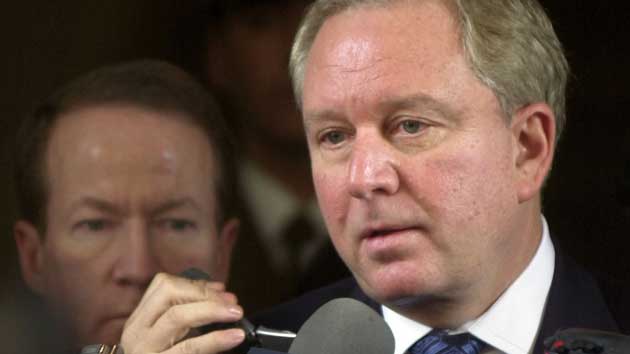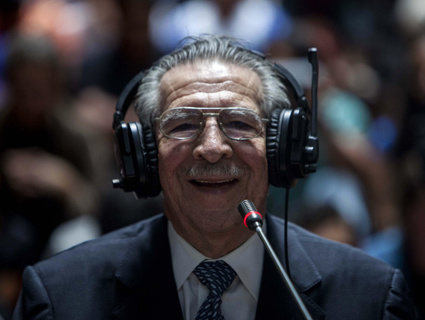
Roberto Candia/AP
In late July, with child migrants still surging across the US-Mexico border, President Obama met with Central American leaders to discuss a response to the crisis. Not satisfied with Obama’s plans, Guatemalan president Otto Pérez Molina took his agenda to the media, writing a Guardian op-ed criticizing the United States for the lasting legacy of both the Cold War and the drug war in his country.
Around the same time, Guatemala hired a lobbyist to help push its interests in Washington, DC. Given Pérez Molina’s sharp criticism of the United States’ history in the region, his choice—former Reagan official and noted Cold War propagandist Otto Reich—was a shocker.
If you’ve forgotten about Reich, check out this 2001 profile from The American Prospect, this 2002 New Yorker piece, or his National Security Archive page. Highlights of his Latin American misadventures include:
- Running the Reagan-era Office of Public Diplomacy for Latin America and the Caribbean (OPD), which, as historian Greg Grandin wrote in Empire’s Workshop, “was officially charged with implementing a ‘new, nontraditional’ approach to ‘defining the terms of the public discussion on Central American policy.'” What it actually did was work to ensure US support of the Nicaraguan Contras in their offensive against the Sandinistas.
- Overseeing OPD’s “white propaganda” program, which placed pro-Contra op-eds in the mainstream media without acknowledging their links to the Reagan administration.
- Confronting and intimidating those journalists Reich believed were sympathetic with the Sandinistas or the Salvadoran rebels. This included a memorable trip to the NPR office in DC—Reich referred to NPR as “Moscow on the Potomac”—during which he alerted reporters that OPD was listening to and transcribing their Central American reporting.
- Helping write the Helms-Burton Act (which tightened the Cuban embargo) as well as lobbying for Bacardi to eliminate Cuban trademark rights so the rum maker could pilfer Cuba’s official Havana Club brand. (Reich is Cuban American and staunchly anti-Castro.)
Perhaps this is stating the obvious, but hiring someone with Reich’s history in the region is probably not the best way to, as the lobbying disclosure form puts it, “develop a strategy to move forward on the change of narrative from Guatemala to Washington, DC, allowing representatives in the North American political parties that are willing to abandon the reference to Guatemala of the 1970s and 1980s, as well as the last century, and are eager to talk about the present and future of Guatemala of the 21st century.” (The rest of the form is embedded below.)
Nor is it the best way for fellow cold warrior Pérez Molina to avoid references to his role as a military leader during Guatemala’s 36-year civil war, which claimed the lives of more than 200,000 Guatemalans, many of them indigenous Mayans, with assistance from the United States. But then again, trying to make sense of the country’s politics can be futile. “Just as you think you understand,” University of California-Santa Cruz prof Susanne Jonas once wrote, Guatemala will “show you that you understand nothing at all.”
(h/t CEPR’s The Americas Blog)

















